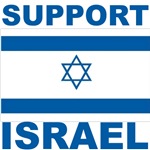11Nov05, 30th anniversary of 'The Dismissal'.
Some times and places in each life are milestones. You remember where you were, what you were doing, even what you thought. Nov 11th 1975 was such a time for me. I was 18, in a room with my RAAF coursemates, studying for my final exams. Someone poked their head in the door, and informed us that the Governor General had dismissed the Whitlam government. Not much later, we heard writs had been issued for an election, and that Malcolm Fraser (then leader of the opposition) had been appointed caretaker PM.
Opinion was polarized, media coverage was at saturation level, and everyone had an opinion. Usually either a 'Labor was robbed/How DARE he', or a 'great, he/they are gone' view. The subsequent election clearly showed that those with the latter view were in the majority.
That was the first election I voted in. I voted for the coalition. Why? Partly because I felt Labor/Whitlam had had a chance at government, and blown it, partly because my political view was towards the right (I was a volunteer, regular Air Force in the then Vietnam era). There had just been too many scandals, too much of the left agenda pushed through in too much of a hurry, too much bad economic husbandry.
The majority of the electorate apparently shared that view, Labor lost, in a landslide, but 'maintaining the rage' became a Labor mainstay. They 'was robbed'. The most enduring lesson for me from that time is that, though there was anger, and partisanship, and division, there was NO violence that I recall - at all. Heated debate, rallies, saturation media coverage sure, but no violence. In contrast to how many societies would have handled such a scenario. And I think the reason was that the Australian population had faith in the electoral system to deliver a fair result, their collectively desired result at the end of the process.
I am for an Australian Republic, yet I voted against the model put to the people in 1999. The reason? The model in my view was seriously flawed. I measured the model against 1975's events, and found it wanting. In my view, what is needed is an elected President (or call him Governor General still if you like) with codified reserve powers - the peoples reserve champion, who can disolve Parliament, call elections, act as an umpire should such situations arise, and generally act as a pressure relief valve and watchdog. And there is a very big difference between a President/GG selected by Parliament, and one chosen by the people. Quite simply, the difference is to whom does his/her loyalties lie? That, and the question of mandate, and delegated power.
November and December 1975 demonstrated to me that the electorate can make a considered and quality decision on complex questions. A view reinforced by my observations of how the 'ordinary citizen' approaches other difficult situations, like jury service. The 'ordinary Australian' is no mug punter, but a noble soul who is much more thoughtful and responsible than many give him and her credit for.
Opinion was polarized, media coverage was at saturation level, and everyone had an opinion. Usually either a 'Labor was robbed/How DARE he', or a 'great, he/they are gone' view. The subsequent election clearly showed that those with the latter view were in the majority.
That was the first election I voted in. I voted for the coalition. Why? Partly because I felt Labor/Whitlam had had a chance at government, and blown it, partly because my political view was towards the right (I was a volunteer, regular Air Force in the then Vietnam era). There had just been too many scandals, too much of the left agenda pushed through in too much of a hurry, too much bad economic husbandry.
The majority of the electorate apparently shared that view, Labor lost, in a landslide, but 'maintaining the rage' became a Labor mainstay. They 'was robbed'. The most enduring lesson for me from that time is that, though there was anger, and partisanship, and division, there was NO violence that I recall - at all. Heated debate, rallies, saturation media coverage sure, but no violence. In contrast to how many societies would have handled such a scenario. And I think the reason was that the Australian population had faith in the electoral system to deliver a fair result, their collectively desired result at the end of the process.
I am for an Australian Republic, yet I voted against the model put to the people in 1999. The reason? The model in my view was seriously flawed. I measured the model against 1975's events, and found it wanting. In my view, what is needed is an elected President (or call him Governor General still if you like) with codified reserve powers - the peoples reserve champion, who can disolve Parliament, call elections, act as an umpire should such situations arise, and generally act as a pressure relief valve and watchdog. And there is a very big difference between a President/GG selected by Parliament, and one chosen by the people. Quite simply, the difference is to whom does his/her loyalties lie? That, and the question of mandate, and delegated power.
November and December 1975 demonstrated to me that the electorate can make a considered and quality decision on complex questions. A view reinforced by my observations of how the 'ordinary citizen' approaches other difficult situations, like jury service. The 'ordinary Australian' is no mug punter, but a noble soul who is much more thoughtful and responsible than many give him and her credit for.








0 Comments:
Post a Comment
<< Home